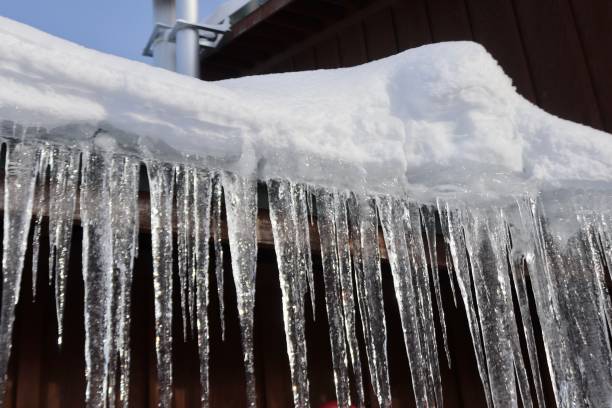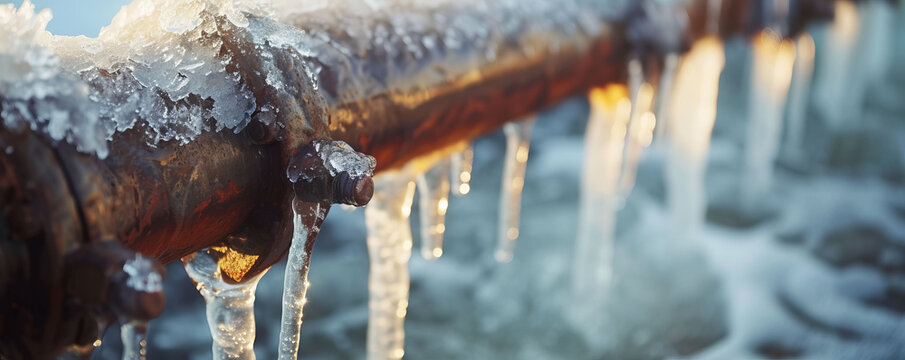Preventing Frozen Plumbing: Effective Tips for Cold Weather
Preventing Frozen Plumbing: Effective Tips for Cold Weather
Blog Article
The content following next on the subject of 6 Ways to Prevent Frozen Pipes is indeed fascinating. Try it and make your own personal ideas.

Cold weather can ruin your plumbing, specifically by freezing pipes. Below's exactly how to avoid it from happening and what to do if it does.
Introduction
As temperatures decline, the risk of frozen pipelines rises, possibly causing expensive repair services and water damage. Recognizing how to stop frozen pipes is vital for property owners in cold climates.
Prevention Tips
Shielding prone pipelines
Wrap pipelines in insulation sleeves or utilize warm tape to shield them from freezing temperature levels. Focus on pipes in unheated or external areas of the home.
Home heating strategies
Keep interior rooms properly warmed, especially locations with plumbing. Open closet doors to allow warm air to distribute around pipes under sinks.
Just how to identify icy pipes
Search for lowered water flow from taps, uncommon smells or noises from pipelines, and noticeable frost on exposed pipelines.
Long-Term Solutions
Structural adjustments
Take into consideration rerouting pipes away from exterior wall surfaces or unheated locations. Add added insulation to attic rooms, basements, and crawl spaces.
Upgrading insulation
Purchase high-quality insulation for pipes, attics, and wall surfaces. Correct insulation aids maintain consistent temperature levels and lowers the risk of frozen pipes.
Shielding Outdoor Plumbing
Garden hoses and outdoor taps
Separate and drain pipes yard hoses prior to winter season. Set up frost-proof faucets or cover exterior faucets with insulated caps.
Comprehending Icy Pipelines
What causes pipes to freeze?
Pipelines ice up when subjected to temperatures listed below 32 ° F (0 ° C) for prolonged periods. As water inside the pipelines freezes, it expands, taxing the pipeline wall surfaces and possibly triggering them to burst.
Threats and problems
Icy pipes can result in water system disturbances, home damages, and expensive repairs. Ruptured pipes can flood homes and trigger extensive structural damages.
Indications of Frozen Water Lines
Recognizing icy pipes early can avoid them from rupturing.
What to Do If Your Pipelines Freeze
Immediate activities to take
If you suspect frozen pipelines, maintain faucets available to eliminate pressure as the ice thaws. Use a hairdryer or towels taken in warm water to thaw pipelines gradually.
Final thought
Protecting against frozen pipelines requires proactive procedures and fast responses. By comprehending the causes, indicators, and preventive measures, house owners can shield their plumbing throughout winter.
Helpful Tips to Prevent Frozen Pipes this Winter
UNDERSTANDING THE BASICS: WHY PIPES FREEZE AND WHY IT’S A PROBLEM
Water freezing inside pipes is common during the winter months, but understanding why pipes freeze, and the potential problems it can cause is crucial in preventing such incidents. This section will delve into the basics of why pipes freeze and the associated problems that may arise.
THE SCIENCE BEHIND FROZEN PIPES
When water reaches freezing temperatures, it undergoes a physical transformation and solidifies into ice. This expansion of water as it freezes is the primary reason pipes can burst. As the water inside the pipe freezes, it expands, creating immense pressure on the walls. If the pressure becomes too great, the pipe can crack or rupture, leading to leaks and water damage.
FACTORS THAT CONTRIBUTE TO PIPE FREEZING
Low Temperatures: Extremely cold weather, especially below freezing, increases the risk of pipes freezing. Uninsulated or Poorly Insulated Pipes: Pipes located in unheated areas, such as basements, crawl spaces, or attics, are more prone to freezing. Insufficient insulation or lack of insulation altogether exacerbates the problem. Exterior Wall Exposure: Pipes running along exterior walls are susceptible to freezing as they encounter colder temperatures outside. Lack of Heating or Temperature Regulation: Inadequate heating or inconsistent temperature control in your home can contribute to frozen pipes. PROBLEMS CAUSED BY FROZEN PIPES
- Pipe Bursting: As mentioned earlier, the expansion of water as it freezes can cause pipes to burst, resulting in significant water damage.
- Water Damage: When pipes burst, it can lead to flooding and water damage to your property, including walls, ceilings, flooring, and personal belongings.
- Structural Damage: Prolonged exposure to water from burst pipes can compromise the structural integrity of your home, leading to costly repairs.
- Mold and Mildew Growth: Excess moisture from water damage can create a favorable environment for mold and mildew growth, posing health risks to occupants.
- Disrupted Water Supply: Frozen pipes can also result in a complete or partial loss of water supply until the issue is resolved.
WHY CERTAIN PIPES ARE MORE PRONE TO FREEZING
- Location: Pipes located in unheated or poorly insulated areas, such as basements, crawl spaces, attics, or exterior walls, are at higher risk of freezing.
- Exterior Pipes: Outdoor pipes, such as those used for irrigation or exposed plumbing, are particularly vulnerable to freezing as they are directly exposed to the elements.
- Supply Lines: Pipes that carry water from the main water supply into your home, including the main water line, are critical to protect as freezing in these lines can affect your entire plumbing system.
- Underground Pipes: Pipes buried underground, such as those connected to sprinkler systems or outdoor faucets, can be susceptible to freezing if not properly insulated.
https://busybusy.com/blog/helpful-tips-to-prevent-frozen-pipes-this-winter/

We had been shown that report about Winter Plumbing Precautions: Preventing Frozen Pipes from an acquaintance on a different domain. Be sure to take the opportunity to distribute this blog entry if you enjoyed it. Thanks for going through it.
Book Your Installation Report this page